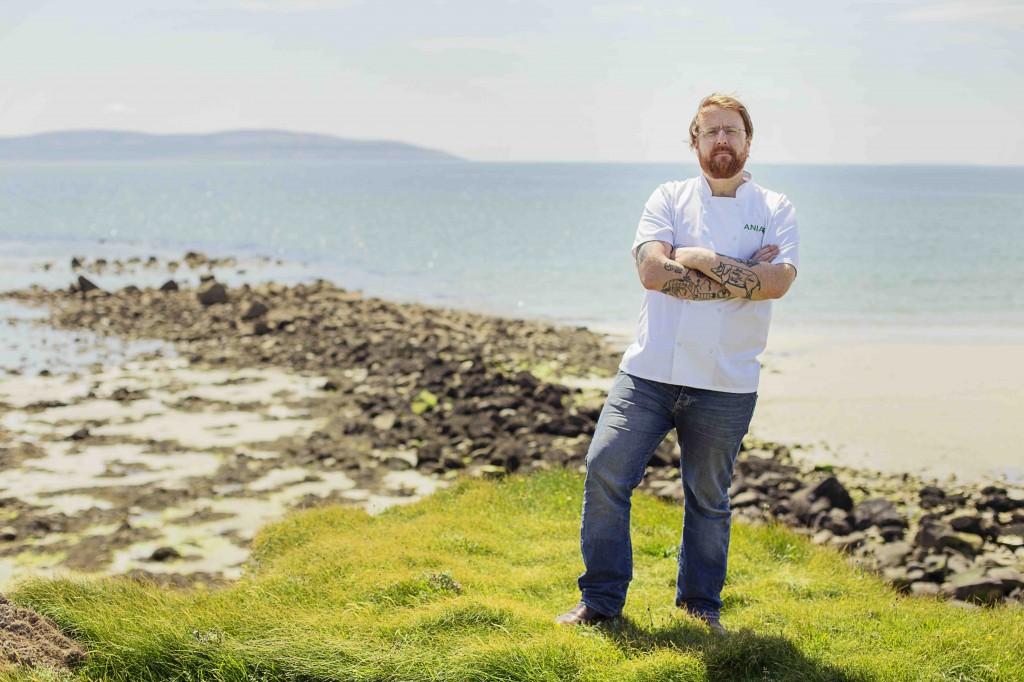Aoife Carrigy chats to chef JP McMahon about his new Zoom-based cookery classes and the digital spaces that are opening up in response to the global pandemic
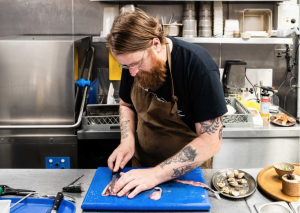 “Just three or four months ago, if you suggested that people could do a cookery class over Zoom, they would have said ‘no, you’re grand thanks’.” So says Galway-based chef JP McMahon, who is now running several live virtual classes each week, starting at €225 for a three-hour private, bespoke class. The proceeds are currently paying the rent at Aniar, his celebrated Michelin-starred restaurant that has lead the way in redefining modern Irish food.
“Just three or four months ago, if you suggested that people could do a cookery class over Zoom, they would have said ‘no, you’re grand thanks’.” So says Galway-based chef JP McMahon, who is now running several live virtual classes each week, starting at €225 for a three-hour private, bespoke class. The proceeds are currently paying the rent at Aniar, his celebrated Michelin-starred restaurant that has lead the way in redefining modern Irish food.
Aniar will not reopen this year, due to a combination of factors which include the absence of their primarily North American customer base, for the immediate future at least, alongside the impossible maths of reconciling social distancing in a 22-seater restaurant with the financial inputs necessary at that level of gastronomy. Crucially, JP is unconvinced of the viability of fine-dining during an ongoing pandemic: “If the likes of Geranium and Noma are not doing 20-course tasting menus, and we are, then there’s something wrong,” he suggests, citing two of Copenhagen’s top fine-dining restaurants who have swapped their three-star offer for a vegan pop-up and burger bar respectively. “I wonder do we have our head in the sand here in Ireland regarding fine dining. I think it’s gonna hit a wall and I don’t know if it’s gonna come back.”
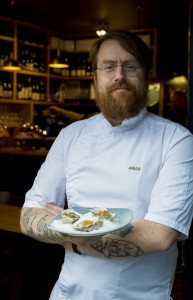 Having ruled out reopening Aniar until April 2021 at the earliest (their two other establishments, Tartare Café + Wine Bar and Cava Bodega, reopen June 30th and July 2nd respectively), JP and his wife and business partner, Drigin Gaffey, have been asking themselves “what we can get out of the space without taking too much financial risk?”. A fast-casual pop-up has been mooted – a ramen bar perhaps; likewise a production space to bottle Aniar’s house vinegars for retail in Tartare. Beamed out from the Aniar kitchens via JP’s smart phone propped on a small stand, the live online classes were born from an organic response to demand: someone asked JP would he deliver a private class via Zoom, and so he did. He posted on social media about it and more enquiries came in, and they realised they might be on to something.
Having ruled out reopening Aniar until April 2021 at the earliest (their two other establishments, Tartare Café + Wine Bar and Cava Bodega, reopen June 30th and July 2nd respectively), JP and his wife and business partner, Drigin Gaffey, have been asking themselves “what we can get out of the space without taking too much financial risk?”. A fast-casual pop-up has been mooted – a ramen bar perhaps; likewise a production space to bottle Aniar’s house vinegars for retail in Tartare. Beamed out from the Aniar kitchens via JP’s smart phone propped on a small stand, the live online classes were born from an organic response to demand: someone asked JP would he deliver a private class via Zoom, and so he did. He posted on social media about it and more enquiries came in, and they realised they might be on to something.
JP admits that – just three or four months ago – he himself would have been sceptical about the practicalities of translating such a sensory experience as a cookery class into a virtual experience. That was before all of our lives went online, from home-schooling digital platforms to video conference calls for work and play. “Now we have all gotten so used to it.”
It turns out that cookery classes translate very well. Both parties using a smart phone makes the visual communication very versatile, allowing you to move the camera in for close ups where a student might ordinarily lean in to see a particular technique. “You forget that you’re on the other side of the world and that you’re communicating through Zoom.”
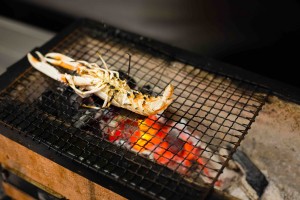 There are challenges and limits to “the experiential aspect”, of course. “You can’t smell through a screen, and that material aspect of touching something, or of checking a dish that they’re cooking – that close encounter is missing,” he says. “So you have to resolve a lot more through language instead of intervening as you might ordinarily. At the end of the day it’s a great way to connect with people, but it’s not a replacement for the real thing.”
There are challenges and limits to “the experiential aspect”, of course. “You can’t smell through a screen, and that material aspect of touching something, or of checking a dish that they’re cooking – that close encounter is missing,” he says. “So you have to resolve a lot more through language instead of intervening as you might ordinarily. At the end of the day it’s a great way to connect with people, but it’s not a replacement for the real thing.”
For now, the online classes take the pressure off the financial commitments of keeping Aniar in limbo while also exploring potential futures. “It’s about trying to innovate to get the restaurant out into new spaces,” JP says, “and it’s also about keeping the name out there,” allowing for continued engagement with their core client base of locked-down international tourists.
“It was the same with the Tartare-at-home boxes,” he says. “At €45 a box and limited to 15 boxes, it’s not a viable model at all – but it was worth it for the sake of the three months of the lockdown, and we had the Covid payment so it was good to bring the staff in.”
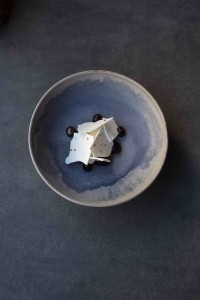 So far, their online students have been “95% American tourists who can’t travel”. Some have been former restaurant diners who wanted a taste of Aniar in their own homes, some former students of Aniar Boutique Cookery School, which has run throughout the winter seasons when the restaurant is closed. Others had been gifted the unique experience by family or friends. Typically, it’s been a “one-to-two” experience, with couples paying €320 between them (plus the cost of buying the necessary ingredients).
So far, their online students have been “95% American tourists who can’t travel”. Some have been former restaurant diners who wanted a taste of Aniar in their own homes, some former students of Aniar Boutique Cookery School, which has run throughout the winter seasons when the restaurant is closed. Others had been gifted the unique experience by family or friends. Typically, it’s been a “one-to-two” experience, with couples paying €320 between them (plus the cost of buying the necessary ingredients).
“One couple did the class with us and then invited their friends to join them at the end and enjoy the food they had cooked – so that involved teaching them a bit of kitchen time management too, in order to have all the food ready to serve at the same time.”
Given the admin involved to get the classes set up, with a fair bit of to-and-fro communications around recipe choice and ingredient sourcing and prep – plus the fact that JP is essentially selling his own personal time and there are only so many hours in the day – the model is never going to be a pathway to early retirement. What it does allow, however, is for JP and Drigin to explore opportunities opened up by our recent rapid acceleration of cultural exchanges and communications via a digital space.
“It has given us the idea to record the classes, almost like the masterclass idea that you see on Instagram,” he says, “so we’ll probably record half-hour classes and sell them online for say €50, or as a package. I do think that long-term it’s a good way to capitalise on people going online more.”
One significant outcome of the global pandemic and the changes that it is effecting is the way in which our world is being made both smaller, in terms of the distances we can communicate across, and bigger in terms of the digital spaces it opens up.
“I think it will push lots of us towards the digital experience,” JP says. Cava and Tartare will be using QR codes in place of printed menus, for example, while other digital solutions to evolving challenges might become more of a norm, such as pre-ordering online. “There’s so much unlocked potential in our mobile phones.”









